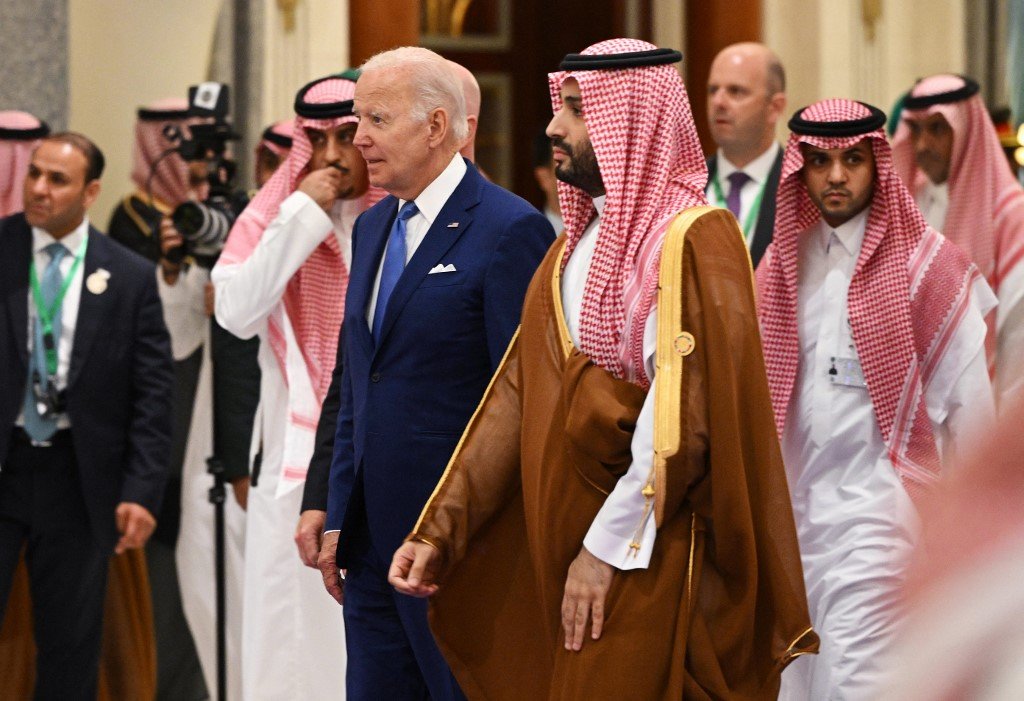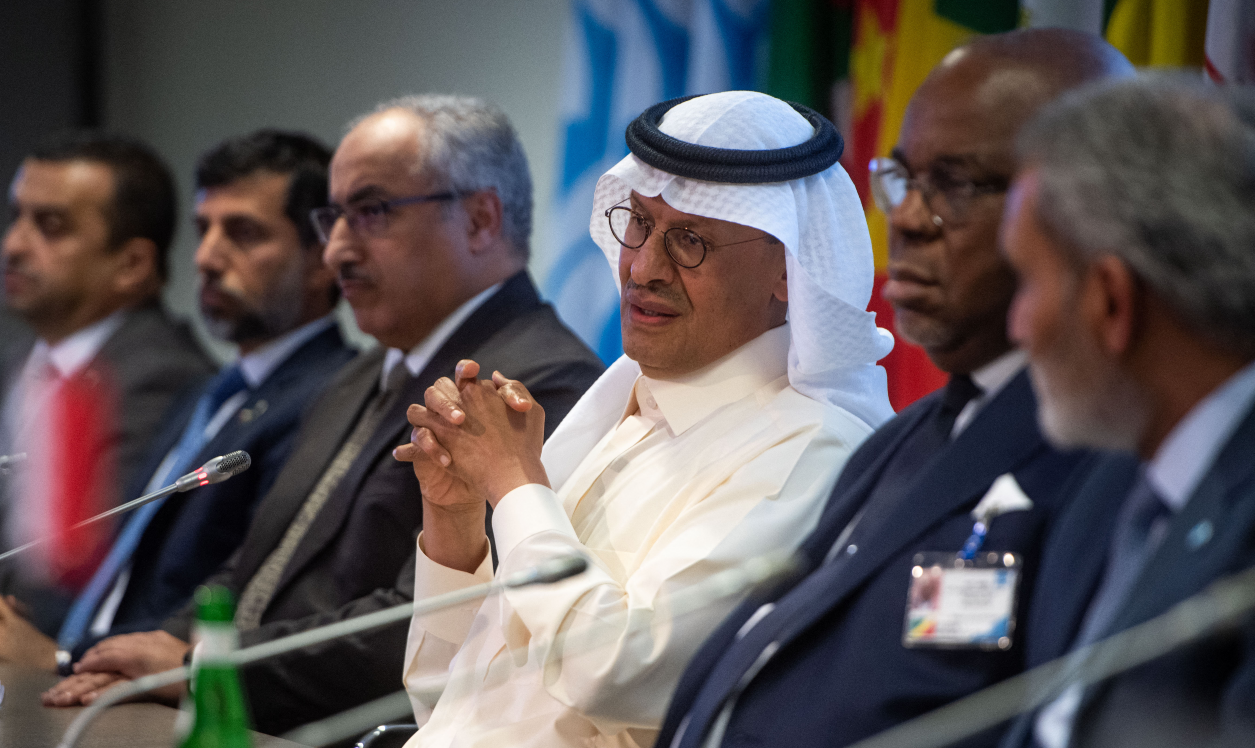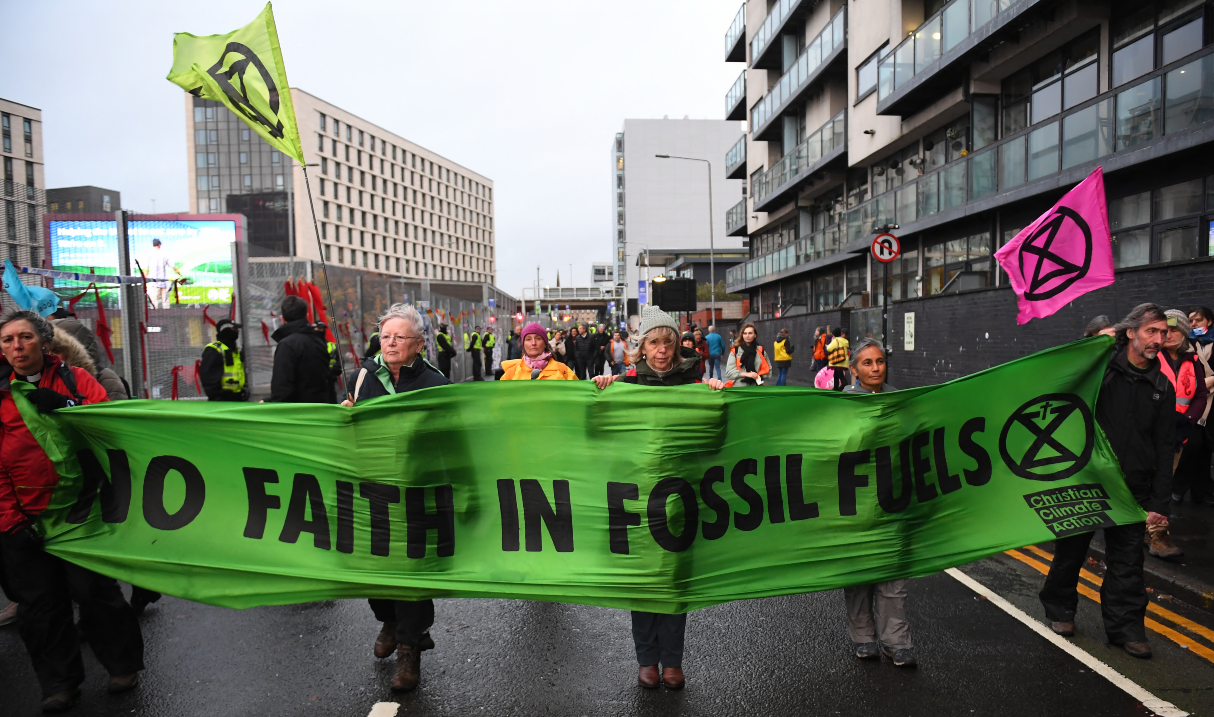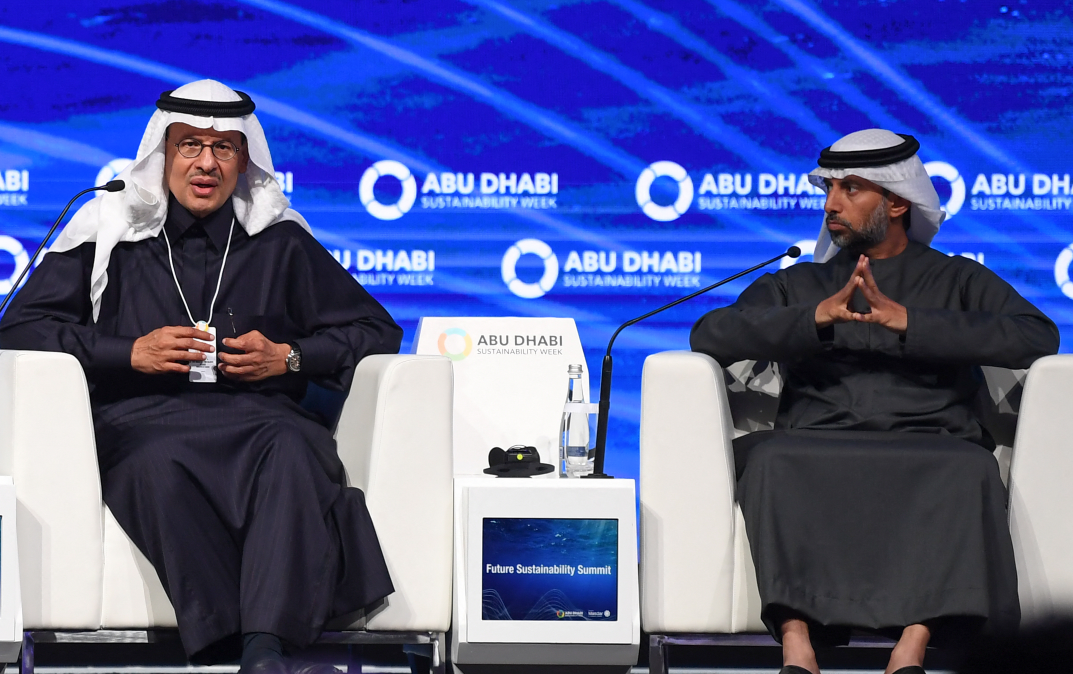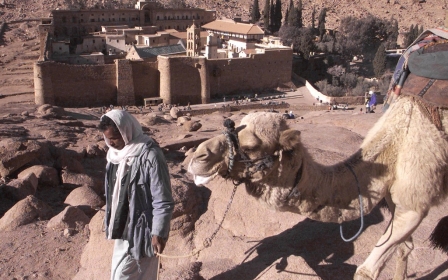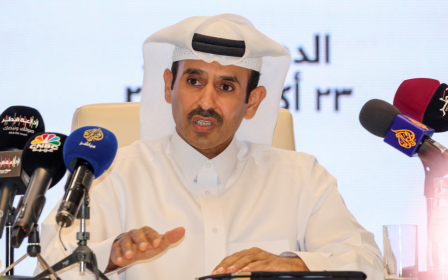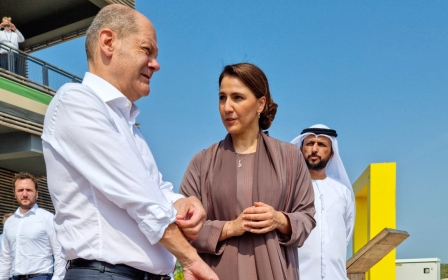Cop27: Gulf states empowered by global scramble for fossil fuels
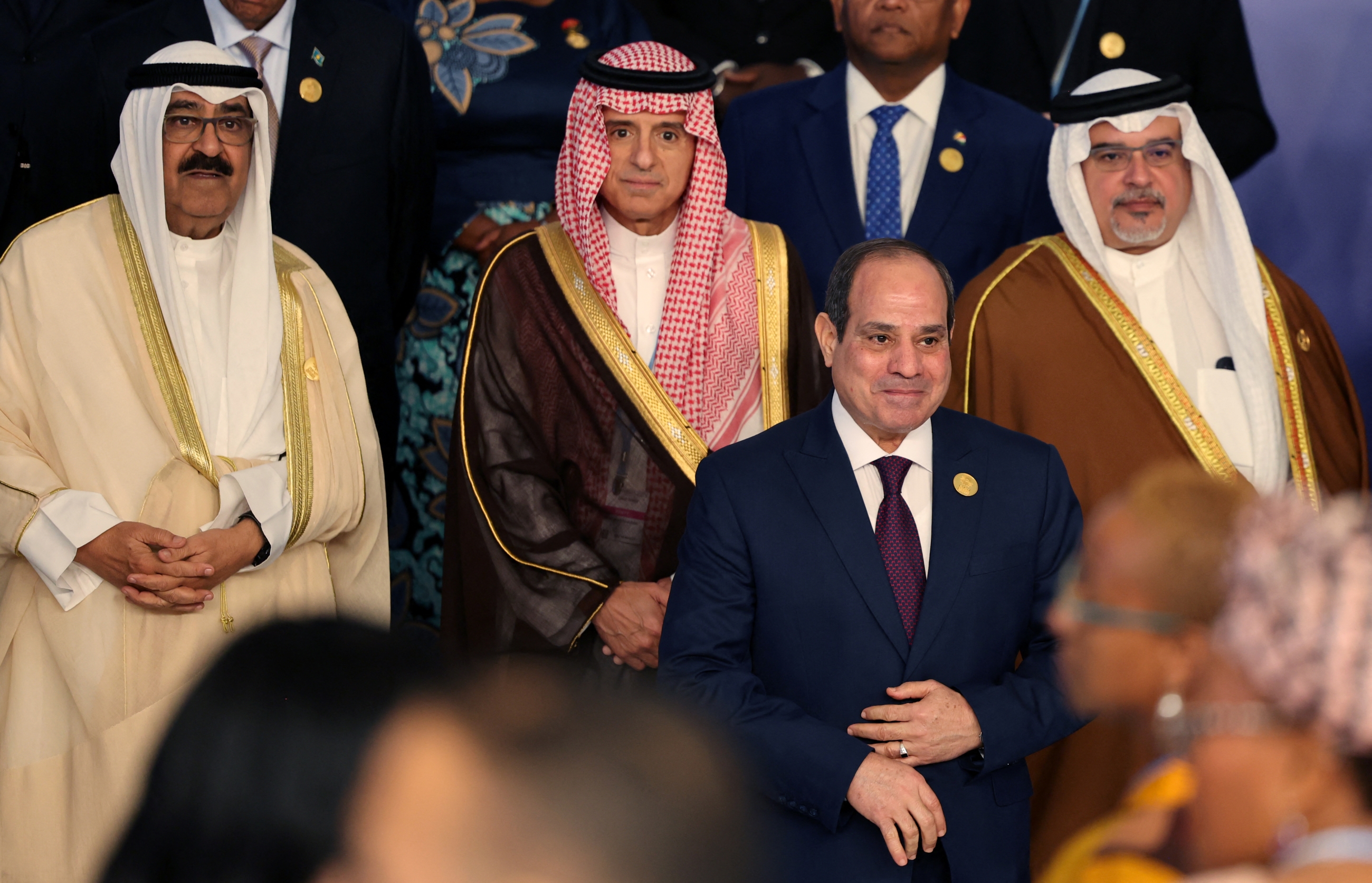
Empowered by the war in Ukraine and renewed concerns over energy security, Gulf petrostates are speaking out against "unrealistic" climate goals, even as they look to steer their fossil-fuel-dependent economies’ through the looming green transition with new investments.
This year's UN climate conference, Cop27, is taking place at the Egyptian resort of Sharm el-Sheikh. Next year’s event is in the UAE.
World leaders began descending on the region Monday to discuss doing away with fossil fuels, just as they have asked the Middle East to do the opposite; pump and pipe more hydrocarbons to replace shortages caused by Russia’s invasion of Ukraine and subsequent western sanctions.
"The difference between Glasgow and Cairo is that the Gulf is invited to the table," Kate Dourian, a fellow at the Energy Institute, told Middle East Eye, referring to the 2021 UN climate conference held in Glasgow, Scotland.
'The good news for the Gulf is that the world is being mugged by reality'
- Robert McNally, Rapidan Energy Group
"The Gulf felt excluded at Cop26, but now they are saying, 'Look at us, everyone is knocking on our door begging for oil and gas'," she added.
Cop26 was dominated by pledges to cut greenhouse gas emissions and "phase down" coal use and "inefficient" fossil fuel subsidies.
The summit followed a warning from the Paris-based International Energy Agency that there should be no new oil and gas investments if the world wanted to reach net zero by the middle of the century.
Fast forward one year, and the political climate has shifted.
Russia's invasion of Ukraine has triggered a scramble for hydrocarbons. Saudi Arabia's state oil giant, Aramco, has replaced Apple as the world’s most valuable company. Gulf leaders in Doha and Riyadh are being courted by western powers for their hydrocarbon reserves, not in spite of them.
President Joe Biden's contentious trip to Saudi Arabia in July was cast in part as an effort to convince the kingdom to boost oil production. German Prime Minister Olaf Scholtz recently signed an energy security deal with the UAE.
"The good news for the Gulf is that the world is being mugged by reality," Robert McNally, an energy adviser to former President George W Bush and current president of Rapidan Energy Group, a consulting firm, told MEE. "Energy security is back at the forefront."
'Shame'
Gulf states have wasted little time in using the turn of events to reshape the narrative on climate policy.
At the UN General Assembly in September, Qatar's ruler, Sheikh Tamim bin Hamad Al Thani, said, "decades of pressure to stop investing in fossil fuels before having sustainable alternatives" had "led to significant shortage[s] in energy supplies".
Sultan Ahmed Al Jaber, the chief executive officer of Abu Dhabi National Oil Co, echoed those claims, warning that a failure to invest in fossil fuels before cleaner alternatives were readily available would create a "recipe for disaster".
Some of the most pointed criticism comes from Amin Nasser, the powerful chief executive of Saudi Aramco, who has labelled current energy transition plans as "unrealistic".
"When you shame oil and gas investors, dismantle oil- and coal-fired power plants, fail to diversify energy supplies [especially gas], oppose LNG receiving terminals, and reject nuclear power, your transition plan had better be right," Nasser said in September.
"Instead, as this crisis has shown, the plan was just a chain of sandcastles that waves of reality have washed away," he added.
The decision by the Organization of Petroleum exporting countries and its Russia-led allies to cut oil production by two million barrels a day in October was defended by Saudi Arabia and the UAE as necessary to support hydrocarbon investments.
Follow the money
Gulf states are right that less money has been going into hydrocarbons.
Investments in upstream oil and gas projects were 23 percent below their pre-pandemic level last year. That trend has continued even as energy prices rise. A report by S&P Global found that just 16 new oil projects were sanctioned in 2022, compared to 33 and 17 in 2013 and 2014, respectively, the last time crude hit above one hundred dollars a barrel.
Analysts, however, are divided on climate policy's role in skyrocketing energy prices.
"I find it super disingenuous that these countries are trying to blame underinvestment on some sort of nefarious negative atmosphere emanating from governments in the liberal West," Jim Krane, an energy expert and fellow at Rice University's Baker Institute, told MEE.
"Here in the US, investors are looking for cash flow. They don't want more oil, they want returns. Companies take their marching orders from investors, not governments," he added.
McNally, from Rapidan Energy, said one of the main reasons for underinvestment has been the commodity's seven-year bust cycle.
Oil prices collapsed 70 percent between 2014-2016, amid a supply glut driven by breakthroughs in US fracking technology. Prices suffered another steep fall during the pandemic, hitting a historic low of -$37 a barrel amid a price war between Saudi Arabia and Russia.
"Investors don’t forget something like that," McNally said, before adding that there is some merit to Gulf producers' arguments. He believes climate policies have been an "additive" to underinvestment. And one that is only set to increase in the future.
"Every year we go out, climate policies will become a more important determinative. The idea that demand is going to peak will weigh on investors," he said.
Each side of the fossil fuel debate also has competing projections for future demand.
The International Energy Agency, which is funded mainly by oil-consuming nations and the US, predicts demand will peak this decade and has cited the war in Ukraine as a factor propelling the transition to cleaner fuel. Meanwhile, Saudi-led Opec raised its long-term forecast for oil demand last week.
Extract every molecule
Even as Gulf powers push back against anti-fossil fuel measures, they are accelerating efforts to decarbonise at home. In October 2021, the UAE became the first Arab nation to pledge to reach net-zero domestic emissions by 2050. Saudi Arabia has set its net-zero target for 2060.
"The Gulf decided it’s better to be on the bandwagon and try to change the direction of the transition in a way that suits their national interests," Karim Elgendy, a climate expert at the Washington-based Middle East Institute, told MEE. "If you are just an obstructionist that says no, you will be blocked out."
'The Gulf decided it’s better to be on the bandwagon and try to change the direction of the transition'
- Karim Elgendy, Middle East Institute
One way Gulf states are trying to balance those interests is by pushing for technology that will retain fossil fuels as part of the transition to clean energy, such as carbon capture and blue hydrogen.
"They are trying to balance the need to continue producing oil and gas and generating revenue, with this transition that they know is inevitable," Dourian said.
Last week, the US and UAE signed a strategic partnership that will see $100bn invested to develop 100 gigawatts of clean energy by 2035. The UAE has poured billions of dollars into clean energy projects and is already home to the largest single-site solar park in the world.
Saudi Arabia launched a joint venture with Taiwan-based Foxconn last week to create its own electric-vehicle brand. The kingdom sees investments in clean energy as central to its Vision 2030 plan to diversify its economy away from petrodollars.
One of Riyadh's more ambitious projects is to become the world’s largest producer of green hydrogen, which is produced using renewable electricity to split water molecules.
At the same time, the Gulf is doubling down on investments in hydrocarbons.
The UAE is accelerating efforts to raise its oil production capacity. Meanwhile, Aramco plans to boost capital expenditure by 50 percent this year. Saudi Arabia's Energy Minister Abdulaziz bin Salman famously vowed the kingdom would be "the last man standing" and extract “every molecule of hydrocarbon” it possesses.
The Gulf does not see an inconsistency in investing in clean energy and fossil fuels at the same, analysts say.
The average price for a gallon of gas in the US is $3.80. In Germany, it is about $7 a gallon. That compares with about $2.30 in Saudi Arabia where fuel is heavily subsidised.
"The more Gulf states can reduce domestic demand for hydrocarbons, the more they have available to export at higher prices abroad," Krane, from the Baker Center said.
The Gulf region is also likely to be more insulated from any climate policy that discourages fossil fuel investments in the future.
"The Gulf will always be able to get investments in hydrocarbons. If the West doesn’t invest, they have their own money and China," Howard Shatz, a senior economist at the Rand Corporation, told MEE.
"If big energy companies find the US isn’t a great place to invest anymore, they will likely go to better markets in the Gulf," he added.
Qatar offers a prime example. France-based TotalEnergies and US ConocoPhillips are ploughing ahead with plans to invest billions of dollars in Qatar’s North Field, the world's largest liquefied natural gas (LNG) project.
"The Gulf producers can welcome the pragmatic turn from the West on energy security, but also meet the West halfway by working on the clean energy transition." McNally said. "It's really fortuitous for them."
Middle East Eye propose une couverture et une analyse indépendantes et incomparables du Moyen-Orient, de l’Afrique du Nord et d’autres régions du monde. Pour en savoir plus sur la reprise de ce contenu et les frais qui s’appliquent, veuillez remplir ce formulaire [en anglais]. Pour en savoir plus sur MEE, cliquez ici [en anglais].


